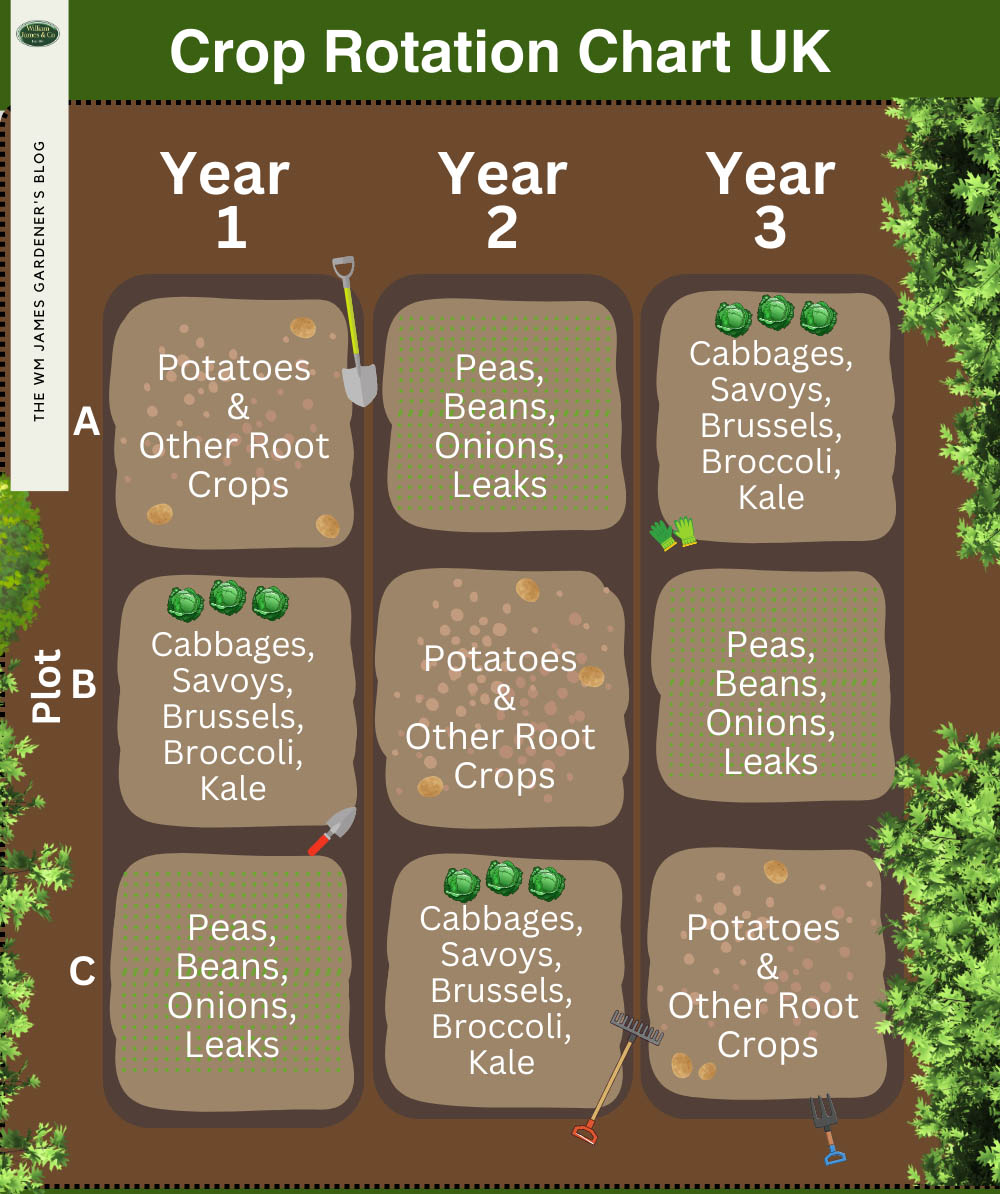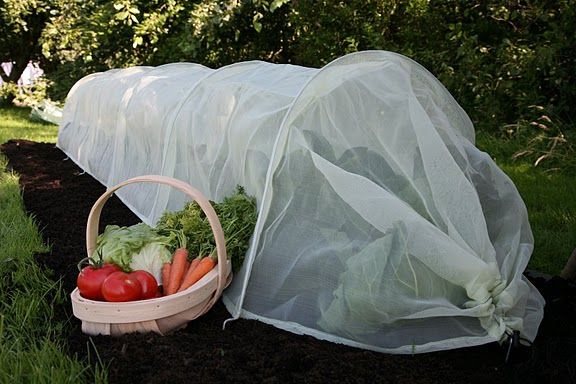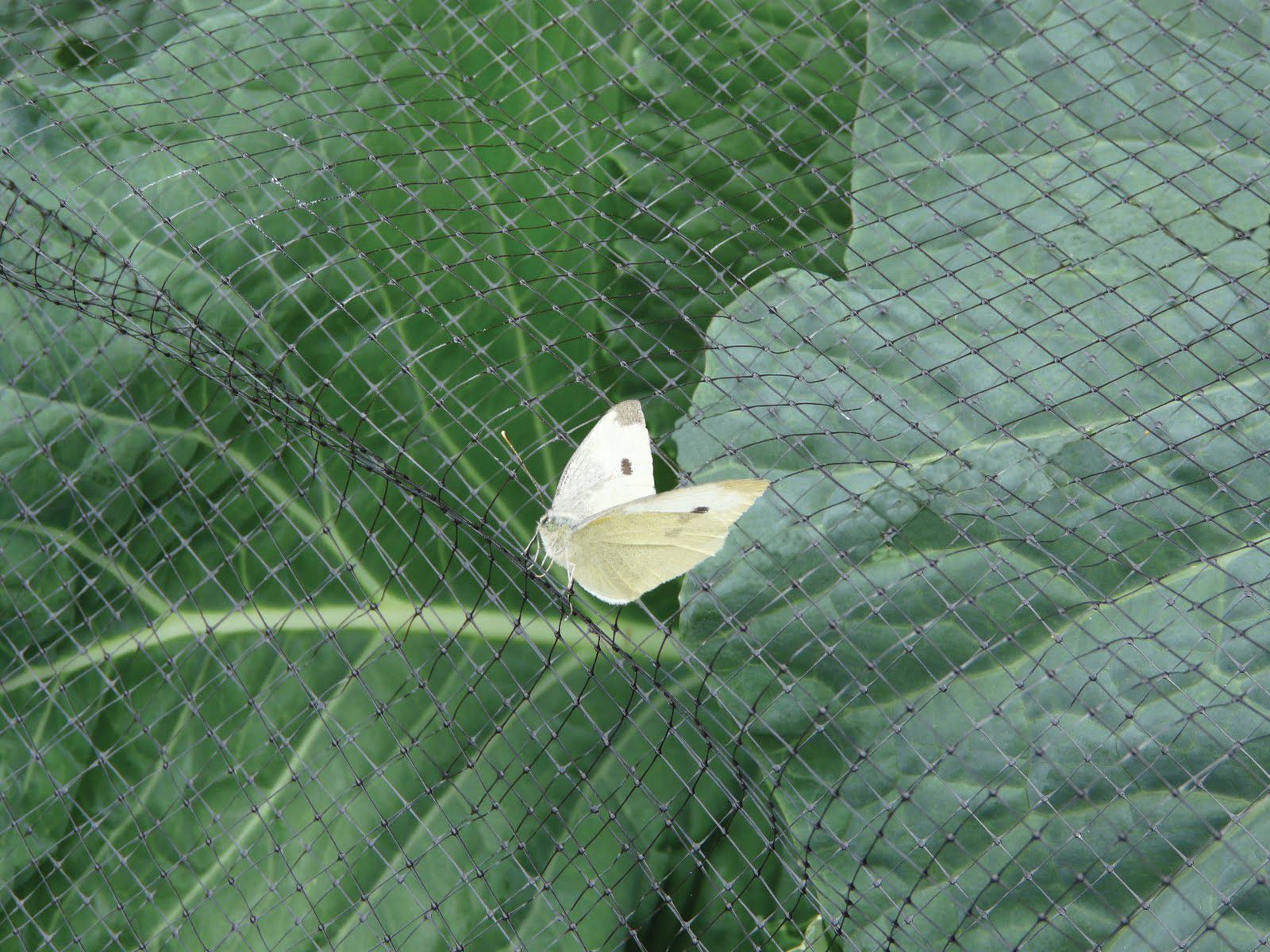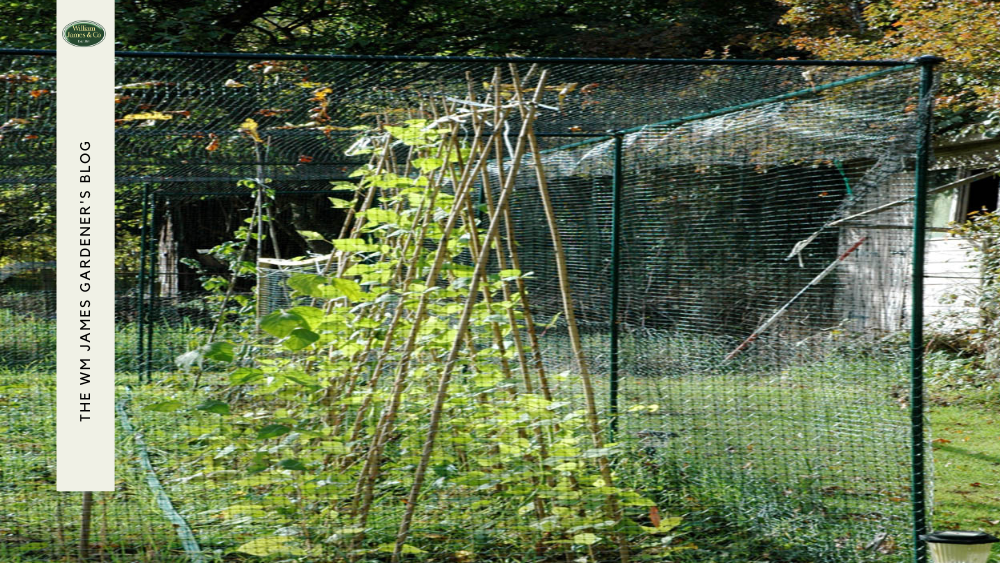We use cookies to make your experience better. To comply with the new e-Privacy directive, we need to ask for your consent to set the cookies. Learn more.
How to Protect Your Garden from Pests: Simply, Naturally & Effectively
- Admin
- 25 Apr 2025
-
231views

Had enough of garden pests ruining your plants? There are plenty of ways to control & prevent them with our guide on how to protect your garden from pests.
Garden nuisances ruining your crops and getting you down? We've all been there—they have no boundaries! But if you've decided enough is enough, we're here to tell you how to protect your garden from pests without chemicals.
At WM James & Co., we're big fans of using organic control and removal methods. So, before reaching for the pesticides, we've got a few tricks up our sleeve to help you with your pesky pest problem.
If you're ready to tackle the pests chemical-free, let's get into the details.
Before we do, you’ll need some equipment and tools to help you along the way. If your toolbox is looking a little sparse or you need an upgrade, we've left some of our recommendations below.
Shop today with free delivery available*!
Physical Barriers for Controlling Garden Pests
The physical barriers we put in our garden will help us keep out both insects and larger pests like foxes, birds, and rodents, which can often be menacing in UK gardens.
There's nothing worse than having all your hard work gobbled up by an uninvited visitor, especially if you were planning on eating the produce yourself!
So, below is a list of barriers you can put in place to keep your plants all to yourself.
Garden Netting
Garden netting is one of the most cost-effective and quickest pest control methods to implement, so it’s definitely our top recommendation.
Depending on the type of pests you’re trying to control, there are different types of garden netting to suit, such as ultra-fine mesh for tiny insects or larger meshes for anti-bird purposes.
Here at WM James, garden netting is our speciality, and we have options for every pest you can think of. From bird to insect, deer, and rabbit netting, we can protect your plants like no other.
We also offer bespoke options, so we can make you a garden net that fits perfectly in the colour you want. Simply take your measurements and let us know!
Browse Our Range of Garden Netting
Here’s what we recommend using in your garden based on the type of pest you’re trying to keep away:
| Type of Pest | Recommended Garden Net | |
| Birds (sparrows, starlings) | Heavy-Duty Garden Bird Netting (Made to Order) | Buy Now |
| Pigeons | 50mm Mesh Knotless Bird Netting (Pigeon Netting) | Buy Now |
| Insects (aphids, white fly, carrot root fly & thrips) | Fine Insect Garden Netting | Buy Now |
| Butterflies | Butterfly Netting - 7mm Mesh | Buy Now |
| Rabbits or hares | Heavy Duty Plastic 50mm Mesh Fence | Buy Now |
| Deer | Heavy Duty Plastic Deer Netting With 50mm Mesh | Buy Now |
| Foxes | 50mm Mesh 1.22m x 2.44m Weldmesh Panel | Buy Now |
Each one is made from high-quality, weather-resistant, UV-stabilised material that's extremely long-lasting, so you won't have to worry about replacing it often.
Just remember to add the fixings and accessories to complete your net set-up!
Copper Tape
Copper tape is a natural and chemical-free way to deter crawling pests like slugs and snails. When these pests come into contact with the copper, it reacts with their slime to create a mild electrical charge, which they find unpleasant.
This makes copper tape a great barrier solution for protecting pots and raised beds.
It's easy to apply, long-lasting, and ideal for organic gardening practices.
So, if you think you'd like to try this for your slippery insect problem, we have a 4m long roll (28mm wide)! Perfect for your pots, beds, greenhouse trays—anything!
Bird Spikes
Bird-tipped pigeon spikes are a humane and effective way to deter larger garden pests like pigeons and other nuisance birds. The spikes won't harm them, so don't worry, but they will make them uncomfortable.
Designed to prevent perching, these spikes can be installed on fences, ledges, pergolas, or sheds.
The blunt tips discourage birds from landing by making surfaces uncomfortable, helping protect crops, fruit trees, and garden furniture from droppings and damage. They're discreet, weather-resistant, and ideal for long-term bird control in domestic gardens.
We have a 5-pack of Pro-Spike Stainless Steel Pigeon Spikes that will protect ledges 220mm wide. They'll also come with a tube of clear adhesive to help you stick them to your preferred surface.
Insect Barrier Glue
Insect barrier glue is a sticky, non-toxic substance used to deter insects like ants, caterpillars, and aphids before they reach your plants.
Applied around tree trunks, greenhouse frames, or plant supports, it creates an invisible barrier that the insects will bump into and turn around.
It's weather-resistant and helps reduce infestations without chemical sprays. Regular reapplication ensures continued protection throughout the growing season.
We recommend that you apply a band of PVC tape to pots, benches, immature tree bark, and support poles before you apply the glue.
Shop ours below!
Gardening Pest Control With Planting Techniques
If you don't want to go in with physical barriers for your gardens' pest control and want to try and prevent them before the problem even occurs, you can try gardening pests away. If that doesn’t make sense, it will in a second.
These methods are constantly used throughout UK gardens, and you probably already do a few of them.
But if you're new to this pest thing, here's everything you need to know about gardening to prevent them at the first port of call.
Crop Rotation
Crop rotation is a natural gardening technique that helps discourage pests in the garden by changing the location of plant families each growing season.
By rotating crops, you disrupt pest life cycles and reduce the chance of soil-borne diseases building up in one area. It also improves soil health and nutrient balance, making your garden more resilient.
This method is especially effective for vegetables and is a key part of integrated pest management in both home and allotment gardens.
We have a handy crop rotation chart you can use below, or you can read more about crop rotation in our guide.
Read Our Complete Crop Rotation Guide
Companion Planting
Companion planting is a natural pest control method that involves growing certain plants together to repel unwanted insects.
Some plants, like marigolds, basil, and nasturtiums, emit scents or compounds that deter pests such as aphids, whitefly, and beetles. Others attract beneficial insects that prey on garden pests, but we'll talk about that later.
By choosing the right plant pairings, you can create a healthier, more balanced garden ecosystem without the need for chemical intervention.
Plus, your veggies can even get tastier the more companion planting you do. Feel free to read more about this in our blog post about growing root vegetables!
Find More Info on Companion Planting
Prioritise Soil Health
Prioritising soil health is a key strategy for naturally repelling pests in the garden. Healthy, nutrient-rich soil supports strong, resilient plants that can resist pest attacks.
Practices like adding compost, using organic mulch, rotating crops, and avoiding overuse of chemical fertilisers help build soil biodiversity and structure.
A well-balanced soil ecosystem encourages beneficial microbes and insects that can suppress harmful pests, creating a more self-sustaining and productive garden.
Prioritising your soil health can begin before you even plant your crops. If you want to know how to prep your soil for planting to ensure good health, check out our blog post below!
Learn How to Prep Your Soil for Planting
Grow Plants to Deter Pests
Growing specific plants known for their pest-repelling properties is another natural way to protect your garden. You'll also get a healthy supply of new plants, so it's a win-win.
Herbs like rosemary, mint, and basil can warn off insects such as aphids and whitefly, while flowers like marigolds and calendula repel nematodes and beetles.
These plants work by emitting strong scents that pests don't like. Strategically placing them among your crops will help reduce infestations.
Extra Natural Methods for Pest Control in Your Garden
And finally, here are a few other natural remedies you can use if you're really struggling to get rid of your garden pests.
Many avid gardeners actually swear by some of these methods, so if you try them out, you might find they become your new go-to.
Eggshells
Scattering crushed eggshells around plants is a simple, natural way to deter soft-bodied pests like slugs and snails.
The sharp, jagged edges of the shells create an uncomfortable surface that these pests avoid crawling over.
As an added bonus, eggshells gradually break down and enrich the soil with calcium, supporting plant health. This is why most gardeners add eggshells to their compost heap.
For best results, apply a generous ring around the base of vulnerable plants and replenish after heavy rain.
So next time you treat yourself to a fry-up, keep the shells!
Natural Oils
Using natural oils, such as neem oil or peppermint oil, is an effective way to deter pests in gardens.
These oils work by repelling or disrupting the life cycles of common pests like aphids, whiteflies, and spider mites. Neem oil, for example, interferes with the insect life cycle, while peppermint oil’s strong scent repels many bugs.
When diluted and sprayed on plants, natural oils provide targeted protection without harming beneficial insects or the environment.
Wildlife Integration
Integrating wildlife into your garden, like encouraging birds, frogs, hedgehogs, and beneficial insects like ladybirds and lacewings, helps keep pest populations under control.
Creating habitats such as log piles, ponds, bird boxes, wildflower areas, and even bee hotels invites these helpful creatures in.
By supporting the ecosystem, wildlife integration promotes a balanced environment where pests are kept in check without chemical interference.
You'll get to admire the new surrounding wildlife, too, which we think is a huge bonus!
Prune & Clean Regularly
Regular pruning and garden cleaning are essential for maintaining plant health and aiding pest control in the garden. Removing dead or diseased leaves, overgrown branches, and plant debris reduces hiding spots and breeding grounds for insects and other pests.
It also improves air circulation and sunlight exposure, making plants less vulnerable to fungal infections and infestations.
Keeping the garden tidy, including cleaning tools and disposing of waste properly, is a simple but effective way to prevent pest problems before they start.
It's all about keeping a clean and tidy outdoor space. Below is a selection of our pruning and garden tidying equipment if you need a few extras!
Agralan White Fly Killer
Agralan Whitefly Killer is a pesticide-free solution designed to control whitefly infestations in greenhouses and gardens. These pests can be a serious issue for crops like tomatoes and cucumbers.
Based on seaweed extract, it kills whitefly through physical contact and is safe to use alongside biological controls. The 500ml concentrate can be diluted with water to make 5 litres of spray for your crops, and when the pests come into contact with it, they'll die.
You should use this weekly if your infestation is overwhelming your crops, but you shouldn't use it on young plants, as it'll cause more damage than good.
What's the Problem with Chemicals for Pest Control?
While chemical pesticides can offer quick results, they often cause harm in thriving plants.
These substances can kill beneficial insects like bees and ladybirds because they don't differentiate between good and bad wildlife. This will disrupt the natural ecosystem and eventually lead to pest resistance.
They may also contaminate soil and water, affecting plant health and local wildlife, especially if you have cats or dogs.
For gardeners seeking a sustainable and safe approach, reducing or avoiding chemical pesticides is key to building a healthy, balanced garden environment.
Exposure to chemicals like this is also not great practice from a human point of view, as they can be bad for our own health. So, where possible, try to stick to organic, natural methods of pest prevention and control.
Final Words: Controlling Garden Pests for a Beautifully Healthy Garden
Hopefully, you'll now have a better idea of how to control your garden pests and prevent future visits or infestations.
Often, removing pests from your garden is a marathon, not a sprint. You have to be consistent, not get bogged down by ruined plants, and focus on creating a healthy outdoor space that thrives. The rest is easy.
So, what method will you try? If you need any more help or advice on preventing and controlling garden pests, please feel free to contact us. With over 60 years in the horticultural industry, we're more than happy to help.
*Free delivery is available on orders over £100.
FAQs
What is the Best Method for Protecting Plants from Pests?
We'd always recommend trying natural, organic methods to prevent and control pests in your garden before reaching for the chemical pesticides.
Methods like garden netting, spraying essential oils, and crop rotation can be very effective, if not more effective than pesticides, at reducing your pest problem.
What is the Best Natural Insect Repellant for Gardens?
There are plenty of effective ways to keep insects out of your garden and off your precious crops. It's all about doing what's best for your gardening style.
You can plant potent herbs that insects detest, scatter eggshells to stop slugs and snails from getting over your soil and onto your produce, among many other things.
Read more about insect repellent in the post above!
How Do I Stop My Plants from Being Eaten?
If you grow delicious produce in your garden good enough for you to eat, best believe it's good enough for birds, foxes, and rabbits, too.
To make sure your efforts haven't gone to waste, we recommend installing garden netting or a vegetable or fruit cage to keep your plants protected from predators.
For some other methods, check out the post above!
What is the Best Homemade Insect Repellant?
Well-seasoned gardeners have become accustomed to many homemade insect repellents. Some of them include making their own natural oil sprays, which can work wonders in reducing an infestation.
Read more about this in the post above!


















